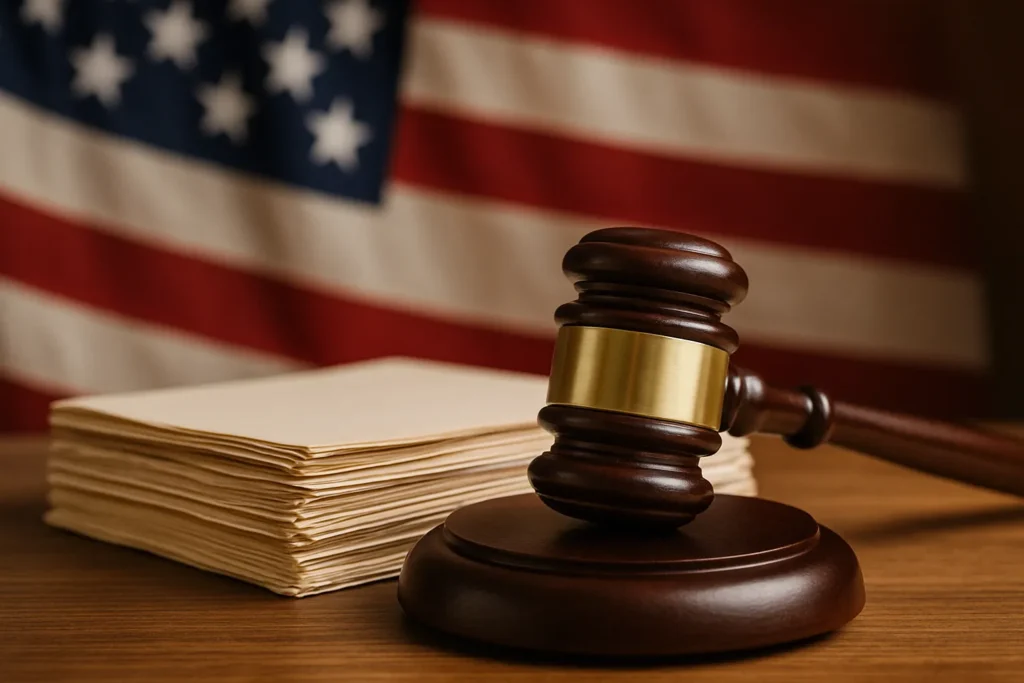Unchecked Power Meets Judicial Resistance
Just months into 2019, the Trump administration’s ambition to reshape the federal workforce by executive fiat confronted a formidable foe: America’s independent judiciary. In a legal drama spanning coast to coast, federal judges in both California and Rhode Island have issued sweeping injunctions halting the administration’s plans to slash government jobs and dismantle core public-serving agencies.
President Trump’s February executive order called for unprecedented reductions across more than a dozen federal agencies. Under its terms, for every four departing federal employees, only a single new worker could be hired, with rare exceptions carved out for public safety and law enforcement. The White House trumpeted this as a necessary crusade against “bloated bureaucracy.” Behind the rhetoric, thousands of careers—along with public services ranging from worker protections to cultural funding—hung in the balance.
Yet, on the legal battlefield, evidence swiftly mounted that the administration was overreaching. In California, Judge Susan Illston acted decisively, enjoining the reductions in force with a temporary restraining order. The evidence was damning: unions, workers, and local governments provided more than 1,000 pages of documentation and 62 sworn declarations revealing severe impacts. Just one stark example—at the National Institute for Occupational Safety and Health (NIOSH) in Pittsburgh, 221 of 222 staffers faced termination. Judge Illston underscored that such radical transformation of the federal workforce was squarely Congress’s prerogative, not the president’s alone.
“The integrity and continuity of government agencies cannot be whimsically upended by executive order—especially when Congress explicitly created and funds them.”
This was no local skirmish. As Chief Legal Analyst Khalif Rhodes highlighted, the wave of litigation was a clear example of constitutional checks operating in practice, with the courts defending both legislative process and public interest.
What’s Really at Stake? Public Services and Democratic Accountability
A closer look reveals the human and institutional costs embedded in bureaucratic jargon. At issue weren’t mere headcounts, but the backbone of critical services. In Rhode Island, Chief Judge John J. McConnell blocked executive moves to dissolve niche but vital agencies: the Institute of Museum and Library Services, the Minority Business Development Agency, and the Federal Mediation and Conciliation Service—all lifelines for communities, cultural institutions, and minority entrepreneurs.
New York Attorney General Letitia James, leading a coalition of 21 states, argued forcefully that dismantling these agencies not only violated the Administrative Procedure Act but ignored constitutional protections. She told reporters, “These executive orders threaten vital support systems for libraries, for workers, and for minority-owned businesses. This fight isn’t ideological—it’s about keeping government accountable to the people it serves.”
Expert voices reinforced these dangers. According to Georgetown public policy scholar Don Kettl, hasty reductions “have a chilling effect on the talent pool and erode the expertise that makes agencies function.” He likened such cuts to “removing the keystone from an arch—the structure above doesn’t just shrink, it risks catastrophic collapse.” Absorbing this, one must ask: if the president can unilaterally hollow out agencies mandated and funded by Congress, what does that portend for the separation of powers—one of America’s core democratic pillars?
This isn’t mere partisan wrangling—it’s a test of constitutional endurance. Each agency cut isn’t a spreadsheet entry, but directly sculpts the lived reality of millions: fewer workplace inspections, stalled support for local museums, diminished resources for minority business development. Who, in the end, pays for executive overreach? Everyday families and future generations.
Beyond Bureaucracy: Overcriminalization and Its Discontents
In the swirl of courtroom battles, the Trump administration also unveiled another sweeping initiative: a mandate that federal agencies compile, publish, and annually update lists of all criminal regulatory offenses. Declared under the banner of “fighting overcriminalization,” this executive order, according to proponents, aims to prevent Americans from being blindsided by obscure rules carrying criminal penalties.
At first blush, transparency around regulation seems sensible, even overdue. After all, Harvard Law Professor Rachel Barkow has argued for years that the sheer volume and complexity of federal regulation risks unfairly ensnaring ordinary Americans. “Regulatory crime,” she warns, “should be the exception, not the norm.”
Yet critics caution that the administration’s approach is less about protecting civil liberties and more about weakening government’s ability to hold corporate wrongdoers accountable. As environmental justice advocate Mustafa Santiago Ali notes, “Stripping regulatory power under the guise of fairness may let polluters and bad actors off the hook.” The devil, as ever, lurks in the details—especially when agencies are simultaneously being gutted of the expertise needed to enforce the very rules now to be catalogued.
Progressive values of accountability and transparency are not advanced by breaking the government’s capacity to serve its protective functions. Robust reform means working alongside civil servants, not against them, and strengthening—not dismantling—the public’s watchdogs.
Checks and Balances: Why Judicial Oversight Matters
The recent judicial actions are more than a bureaucratic standoff. They are a crucial affirmation that in a democracy, no branch rules unchecked. Political leaders may campaign on slogans and efficiency mandates, but they’re bound by constitutional process and the hard-earned lessons of history.
Political observers may recall President Reagan’s early-1980s experiment with agency downscaling, which gutted the EPA and OSHA and led to public backlash as auto pollution worsened and workplace injuries climbed. Yale historian Beverly Gage draws a clear through-line: “When regulatory government is slashed for the sake of ideology, it’s almost always the vulnerable who suffer most.”
Today’s federal courts have issued more than a pause—they are reminding us that the bedrock of good governance is respect for process, transparency, and the people whose lives government touches every day. That’s not bureaucratic inertia—it’s democracy with guardrails.

